The College of Engineering, Design, Art, and Technology (CEDAT) on 28th May 2025 convened the UNESCO China Funds-in-Trust (CFIT III) supported workshop, an event aimed at fostering innovation and technological advancements within the university. The high-level workshop hosted by the School of Engineering aimed at fostering innovation and advancing the national development agenda. It brought together academics, industry experts, students, and government officials to discuss the future of engineering, science, and technology in Uganda.
The event was officially opened by the College Principal Professor Moses Musinguzi, who congratulated the School of Engineering for spearheading the initiative, emphasizing the importance of innovation in African universities. He noted that institutions often overlook innovation, yet it is a key pillar in higher education worldwide. “Innovation should be at the core of universities. It defines progress, and as a college, we are committed to expanding our contributions in this field,” he stated. Prof. Musinguzi stressed that innovation is the key to economic transformation, and universities must integrate it into their work.
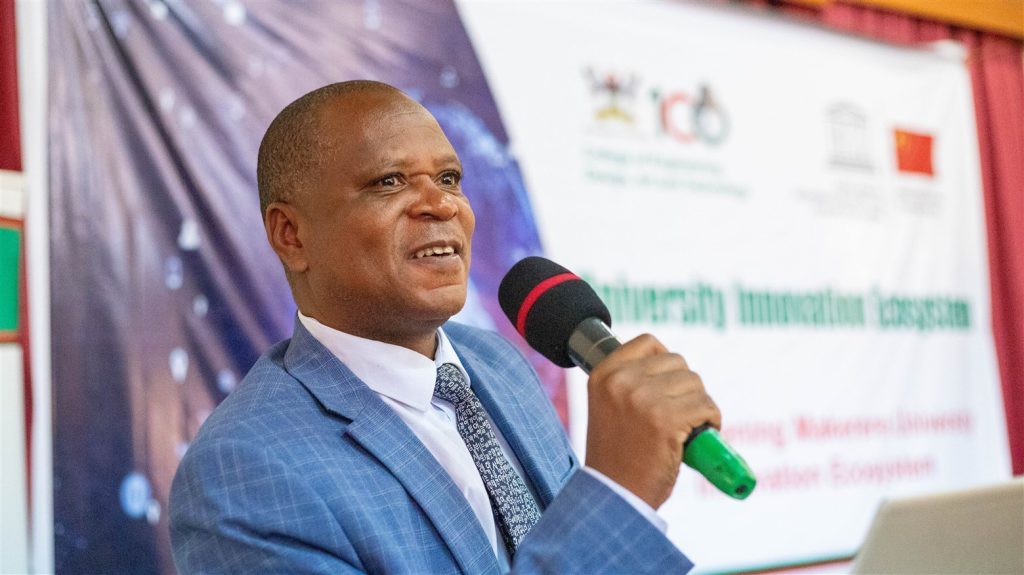
He acknowledged the challenge of graduates leaving the university and being absorbed into industries, often leading to a gap in sustaining innovation within the university. However, he expressed optimism, citing engagements like the CFIT Workshop as an opportunity to reconnect alumni and foster continued progress. “If you miss the element of innovation, you will not contribute to socio-economic transformation,” he stated, reinforcing the importance of digital and technological innovation across all sectors.
With an increasing focus on engineering, innovation, and strategic economic development, Makerere University continues to position itself as a leader in technology-driven solutions for Uganda’s future. Attendees, that included the brains behind Kira Motors, comprised students, faculty, and industry partners, engaged in discussions on how Makerere University can enhance its role as a hub for engineering and technological solutions. The CFIT Workshop is expected to yield innovative projects and collaborations that will further strengthen Makerere’s status as a leading institution in engineering and technology.
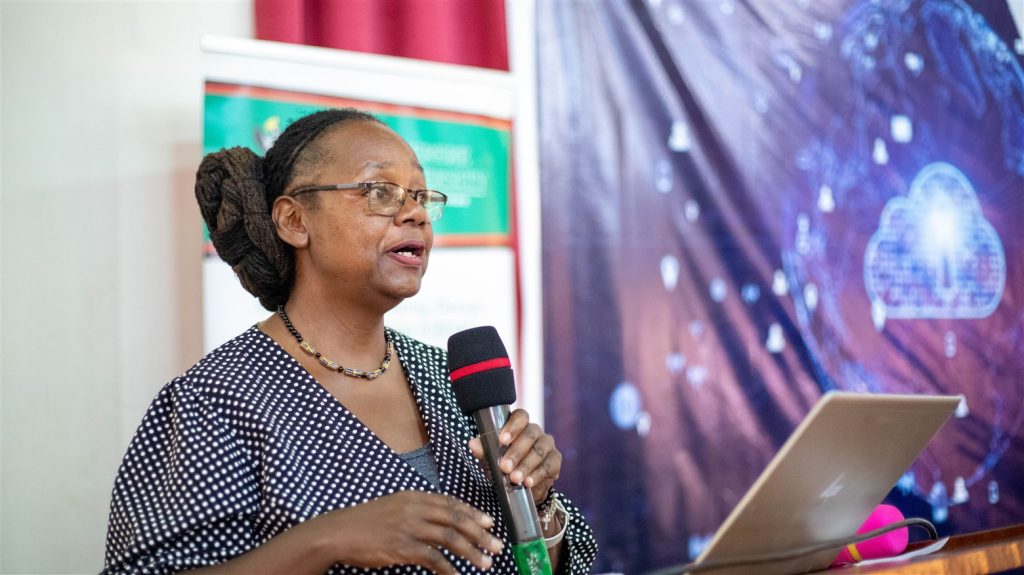
The Dean of the School of Engineering Assoc. Prof. Dorothy Okello said the event was a culmination of different activists done over two years under the CFIIT II project which was coming to a conclusion. She said the purpose of the very many activities was to strengthen ties between the University, the Industry and government. As a way forward, she said, the parties were expected to leverage the experiences and continue the engagements with the Science, technology and Innovations secretariat to share the experiences with other entities. ‘Whatever we are doing is an ecosystem and are doing a lot in contributing to issues of national development, said Prof. Okello who has been the lead of the three year project.
Since 2022, the School of Engineering at Makerere University has spearheaded strategic reforms to enhance graduate employability and technical expertise under the UNESCO China Funds-in-Trust (CFIT III) project. Over the past three years, significant progress has been made, beginning with baseline studies—including a Graduate Tracer study—to assess graduate career trajectories and their alignment with industry demands.
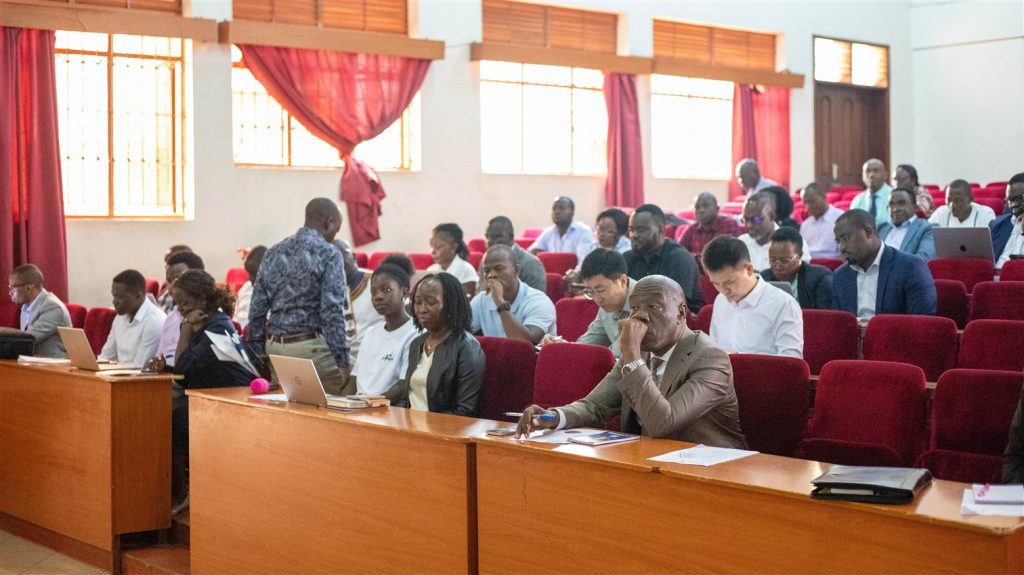
To improve the quality of engineering education and better equip graduates for the workforce, key initiatives have been undertaken, including curriculum reviews, the introduction of competence-based assessments, and enhanced collaboration between academia and industry. Additionally, advancements in assessment methodologies and the development of gender-inclusive curricula tailored to workforce needs have further strengthened the program’s impact
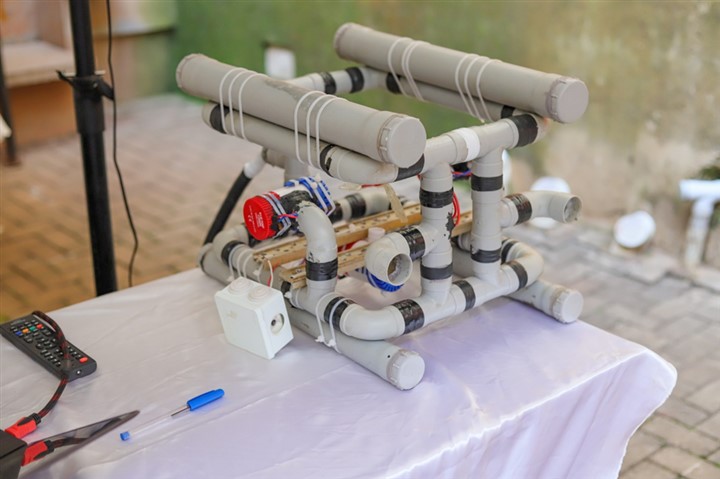
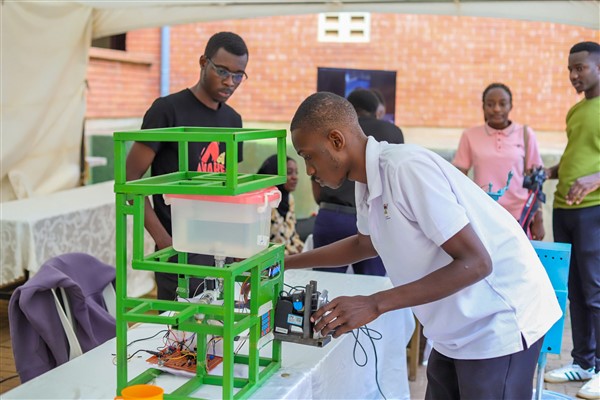
Students are at the centre of learning, innovation, beginning from ideation to a minimum viable product development, supported by research and business mentorship. What started off with 7 students and 24 faculty in year one, to 188 students and 40 faculty in year two, reached a level of 350 applicants for 100 slots in innovative hub tours in April 2025, an indication of the momentum behind the institutionalization of such a system in the university
Written by Harriet Musinguzi, Principal Communication Officer, CEDAT

Theories and workshops cannot create any tangible impact on society.
As you can see the trend now is to translate knowledge into actual innnovations by the students themselves supported by the academia and the industry.